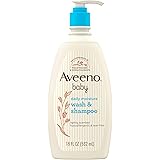Does your prenatal diet truly optimize your baby’s brain development during pregnancy? As Dr. Deepthi Jammi highlights in the video above, conscious food choices significantly impact fetal neurodevelopment. Understanding the intricate roles specific nutrients play is paramount. Think of this process like constructing a sophisticated supercomputer. Each nutrient acts as a vital component, ensuring robust neural pathways and cognitive foundations.
Folic Acid: The Foundation of Fetal Brain Development
Folic acid is more than a simple vitamin. It is a cornerstone of early neurological formation. This B vitamin, or its natural form folate, is essential for neural tube closure. A fully formed neural tube, a precursor to the brain and spinal cord, is critical. Conversely, deficiencies can lead to severe birth defects such as spina bifida and anencephaly. Adequate intake is therefore non-negotiable for sound fetal brain development.
Moreover, folate plays a key role in DNA synthesis. It helps cellular growth and repair throughout pregnancy. Think of it as the architect for the baby’s rapidly developing nervous system. Supplementation, as prescribed by your obstetrician, is often necessary. However, dietary sources remain incredibly important.
Leafy Greens & Bananas: Neurogenesis Nurturers
The video points to spinach and bananas as vital inclusions. Leafy greens, like spinach, are veritable powerhouses of folate. They also provide antioxidants, protecting delicate neural tissue. These greens are packed with vitamins K and A, supporting overall maternal health. This contributes indirectly to optimal conditions for fetal growth.
Bananas, on the other hand, offer a rich source of Vitamin B6. This particular vitamin is crucial for neurotransmitter synthesis. Neurotransmitters are the chemical messengers of the brain. They facilitate communication between brain cells. Consider them the intricate wiring of our supercomputer analogy. These compounds are essential for mood regulation and cognitive function later in life.
Nuts, Seeds, and Dried Fruits: Cognitive Catalysts
The recommendation for nuts, seeds, and dry fruits is strategic. These items are concentrated sources of beneficial micronutrients. Walnuts, for instance, are rich in alpha-linolenic acid (ALA). This is a plant-based omega-3 fatty acid. It supports the structural integrity of brain cell membranes. Almonds provide Vitamin E, a potent antioxidant shielding brain cells from oxidative stress. Think of antioxidants as the protective coating on neural circuits.
Furthermore, seeds like chia and flax seeds deliver more omega-3s. Pumpkin seeds offer zinc, essential for cellular proliferation and neural connectivity. Dried fruits, while sugary, provide quick energy and trace minerals. They are best consumed in moderation. These nutrient-dense options build a robust internal environment for complex neurogenesis.
Whole Grains, Fruits, and Vegetables: Sustained Energy & Protection
Whole grains are complex carbohydrates. They provide a steady supply of glucose, the brain’s primary fuel source. Unlike simple sugars, they prevent energy spikes and crashes. This steady fuel delivery is crucial for sustained brain development. Imagine the baby’s brain as a marathon runner needing consistent energy. Brown rice, oats, and quinoa are excellent choices.
A broad spectrum of fruits and vegetables is equally vital. They supply a wide array of vitamins, minerals, and phytonutrients. These compounds act as cofactors in countless biochemical reactions. They ensure proper enzyme function in brain development. Berries, for example, are rich in anthocyanins. These antioxidants cross the blood-brain barrier. They offer direct neuroprotection and bolster cognitive pathways.
DHA and Omega-3 Fatty Acids: Structural Imperatives for Brain Health
Dr. Jammi emphasizes DHA’s role in improving brain development. DHA (Docosahexaenoic Acid) is an omega-3 fatty acid. It is absolutely critical for fetal brain and eye development. DHA comprises a significant portion of the brain’s gray matter. It is a key structural component of neuronal membranes. Without sufficient DHA, brain cell membranes lack optimal fluidity. This impacts neurotransmission efficiency. Its presence is like having premium, high-speed fiber optic cables for brain communication.
While the video mentions a link, it’s worth noting that the body cannot produce DHA efficiently. It must come from dietary sources. Fatty fish like salmon, mackerel, and sardines are prime examples. However, for those avoiding fish, algal oil supplements are a viable option. Ensuring ample DHA intake is crucial for the optimal structure and function of the developing nervous system. It directly influences cognitive functions, memory, and learning capabilities after birth. This nutrient truly underpins optimal baby’s brain development during pregnancy.











